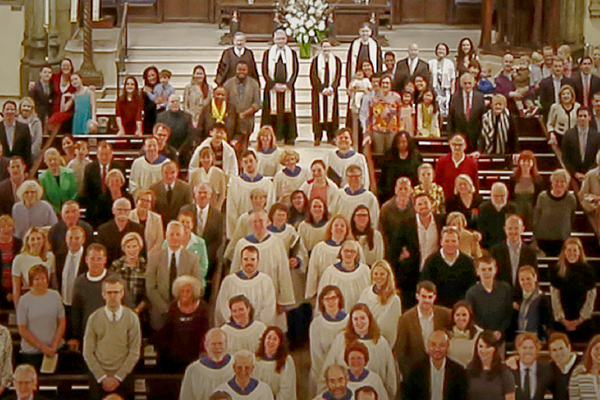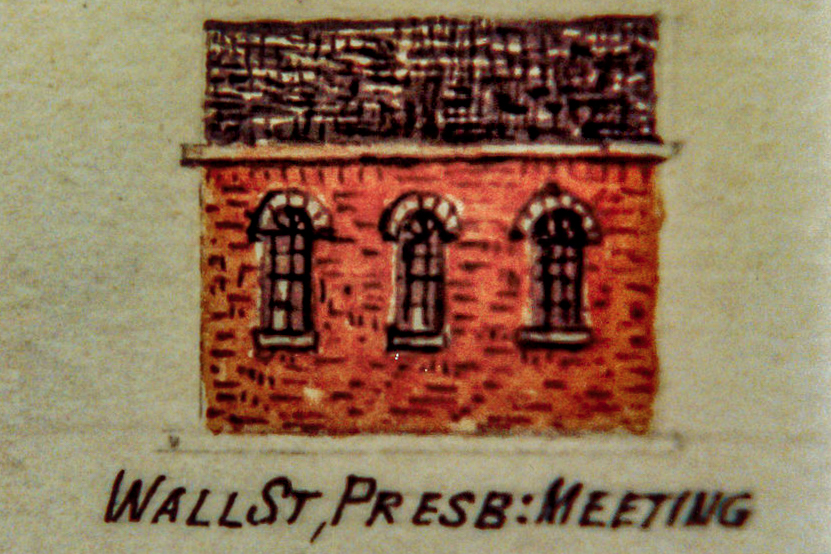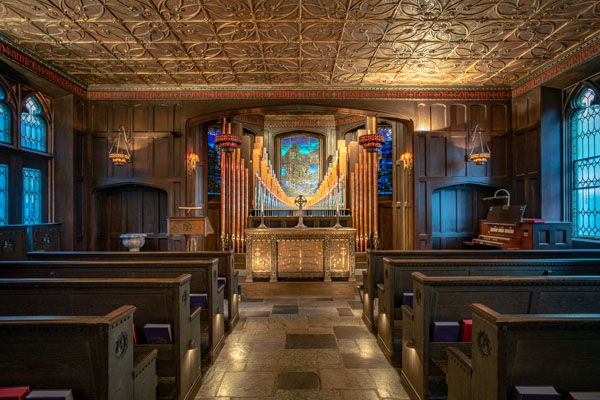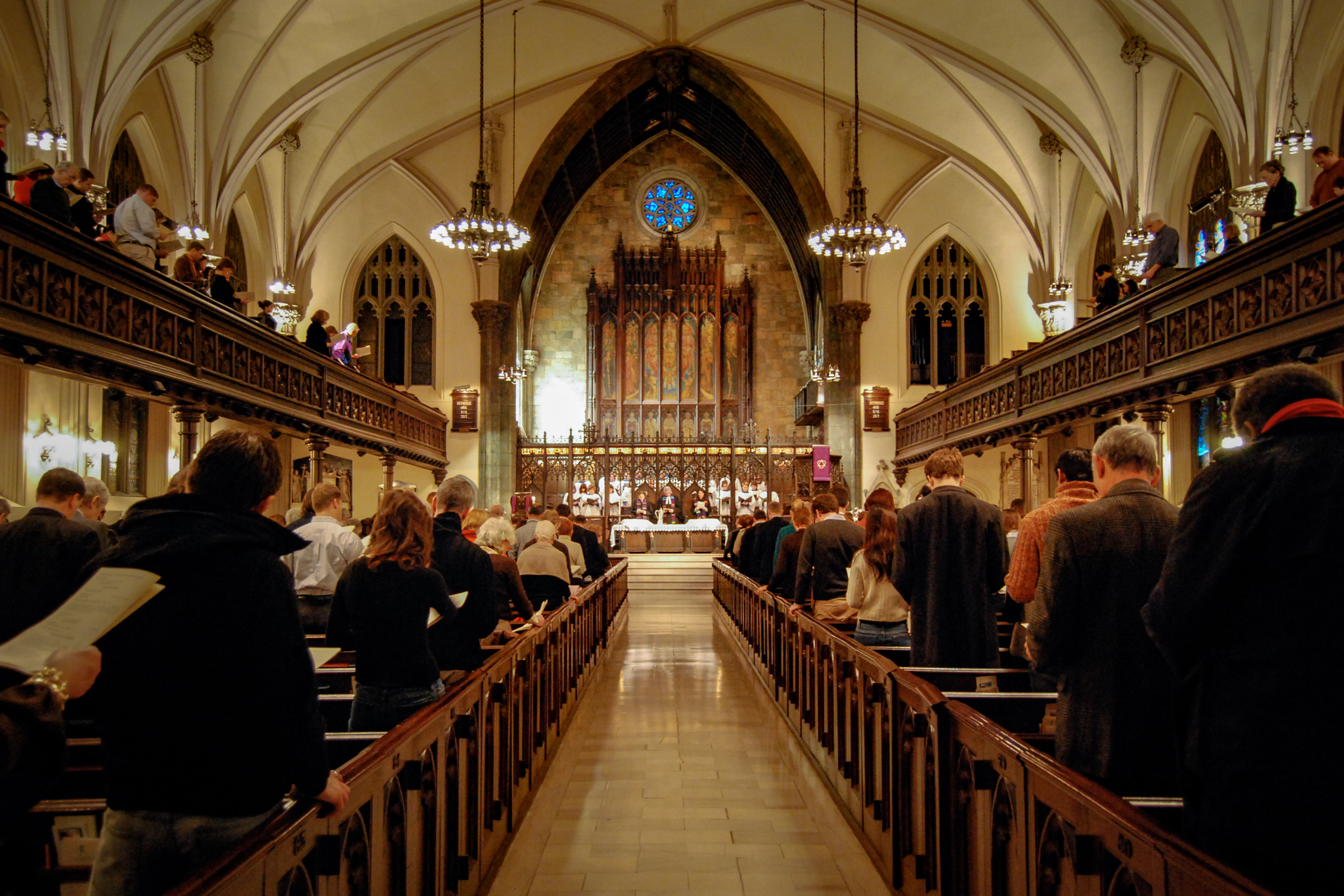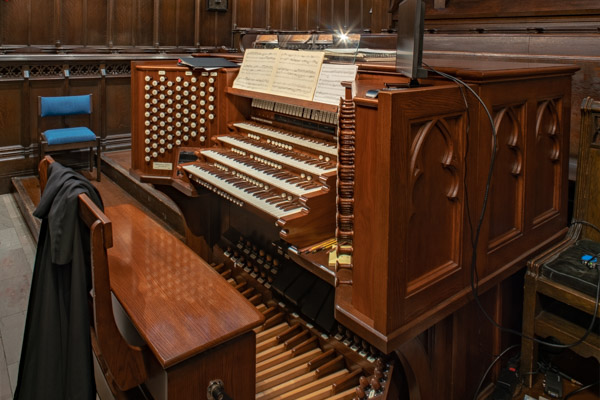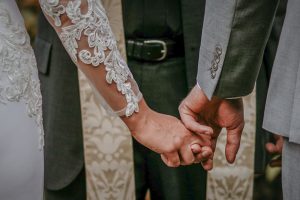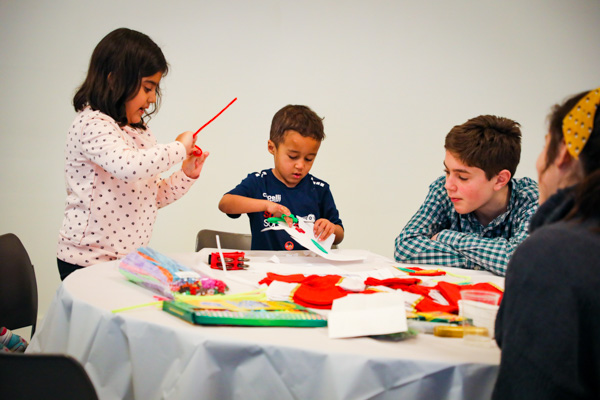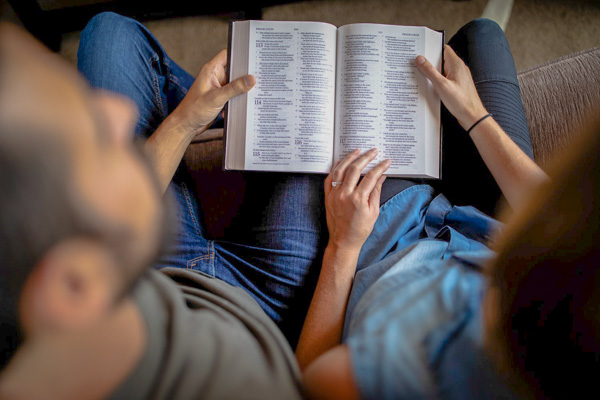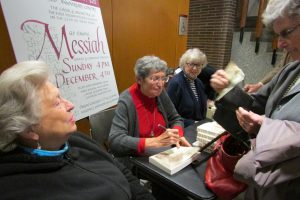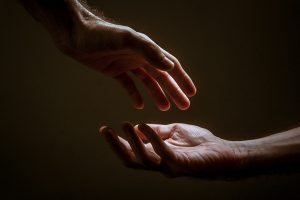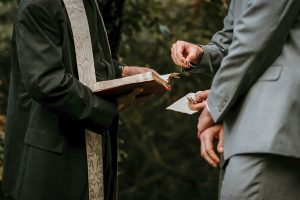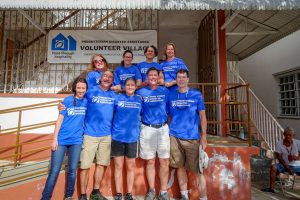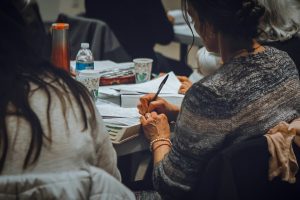“Our past was slavery. We cannot recur to it with any sense of complacency or composure.
The history of it is a record of stripes, a revelation of agony. It is written in characters of blood.
Its breath is a sigh, its voice a groan, and we turn from it with a shudder.
The duty of to-day is to meet the questions that confront us with intelligence and courage.”
—Frederick Douglass (1889)
Old First Slavery Report
First Church archives and public records from that period indicate that a number of Old First. pastors, officers, and members were slaveowners. Several members accumulated wealth through enslavement of others or by participating directly in the slave trade. The early church was supported in part by wealth and leadership skills contributed by those slaveowning individuals. During that time, the congregation included Black people, both free and enslaved. The names and available information concerning those Black members are referenced in the “Old First and Slavery” report. Read the full report by clicking here or scroll down. For an abridged version of the report, click here.
Facing Racism
The Facing Racism Action Group was founded in January 2018 at First Church with a mission to encourage discussion of racism in our society and appropriate Christian responses to racial injustice and inequality. Through the years since the creation of that action group, there have been lectures, presentations, reading groups, and discussions, which have been both enlightening and troubling.
Those meetings have provided an opportunity to openly consider difficult issues regarding slavery and racial discrimination in the United States and have allowed us to reflect on our moral obligations on these issues. Given that our church was founded prior to the end of slavery in the United States, members of the congregation have asked questions about slavery in relation to early First Church history. Those questions have included:
● Did pastors, officers, or members of our congregation ever own slaves?
● How did early First Church leaders view slavery?
● Were funds that founded our church, built church buildings, and provided for the operation of the church, the result of slave ownership or slave labor?
In recent years, many educational and religious organizations have reported extensively on their past connections to slavery. These organizations, some with strong Presbyterian connections, include Princeton Theological Seminary, Rutgers University, Columbia University, the Council of Independent Colleges, St. Mark’s Church, and Harvard University. [2]
The Facing Racism Action Group discussed the creation of a project to explore questions regarding slavery in First Church history, encouraging participation from officers and members of the congregation, and a proposal was presented to session. In January 2021, session received and approved the proposal. A research team, designated as the First Church History Group (FC History Group) was assembled, and permission granted to access church archives to begin research.
Old First and Slavery
Old First, a predecessor of The First Presbyterian Church in the City of New York, exemplifies a paradox of American history. From its founding through the decades leading up to the Civil War, liberty and slavery were intertwined at Old First.
While the founders of Old First were leaders in America’s fight for independence and religious freedom, a number of those same persons owned slaves or were participants in the slave trade.[14] While most slaveowners owned one to three enslaved persons, which was typical of New York slaveowners of the time, several notable individuals and families owned more slaves or were involved in the slave trade. [15]
Throughout Old First history, pastors have been primarily spiritual leaders, preachers, and teachers. Ordained by their respective presbyteries, pastors were men called by the congregation to serve “to ‘minister in the Word and Doctrine,’ and to dispense the sacraments.” [17]
Twelve pastors served the church from its founding through the end of the Civil War. Some ministered to the church for decades, others for only a few years, while some served as senior pastors or as co-pastors with other associate clergy.
Church archives and public records indicate that seven of the first nine Old First pastors were owners of enslaved persons:
− Rev. James Anderson, our founding pastor, left three slaves to his descendants. [18]
− Rev. Ebenezer Pemberton Jr. granted his slave freedom in his will. [19]
− Rev. David Bostwick sold two of his slaves in 1759. [20]
− Rev. Joseph Treat was a slaveowner while a tutor at the College of New Jersey. [21]
− Rev. John Rodgers owned one slave at the time of the 1790 census. [22]
− Rev. John McKnight owned enslaved persons while a professor at King’s College. [23]
− Rev. Samuel Miller owned several enslaved persons, at least one of whom attempted to escape. [24]
Two of the first nine pastors had served in the South prior to or after their calls to Old First:
− Rev. Alexander Cumming [25]
− Rev. James Wilson [26]
While it may be reasonable to assume that some pastors serving in the South may have owned enslaved persons, research at present shows no record of slave ownership by these two pastors, Cumming and Wilson.
Of the three remaining Old First pastors installed in the decades immediately preceding the Civil War, the FC History Group found no evidence of slaveholding:
− Rev. Philip Milledoler
− Rev. Philip Whelpley
− Rev. William Wirt Phillips
Old First: Pastors (1716-1865)

Public records indicate that as a group, pastors took varied positions regarding slavery which at times appeared contradictory. For example, some pastors took a public position against slavery even though they owned slaves. [27] For further discussion of pastoral positions regarding slavery in the years leading to the Civil War, please see the “Supplemental Information” section of the appendix that follows the report.
Having trouble viewing this document? Click here instead.
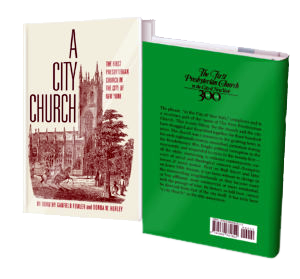
Delve Deeper into Our History and Heritage
Read A City Church: The First Presbyterian Church in the City of New York by Dorothy Fowler and Donna Hurley. This second edition published to coincide with First Presbyterian’s 300-year anniversary chronicles the church and city’s evolution from 1716 through 2016 reconstructing the past of an historic city church and recounting its ministry and mission in a changing world.
Learn more about the church’s origins and development, key church events and milestones, including decisions that have changed the direction of the church, transitions in programs and leadership, and the periods of change and renewal that have enabled it to prosper for over three centuries.
The book incorporates material from church archives and interviews with key figures. Historic photos and color illustrations of the church’s more recent history are spread throughout the book. To order a copy, please call the church office at 212.675.6150.

